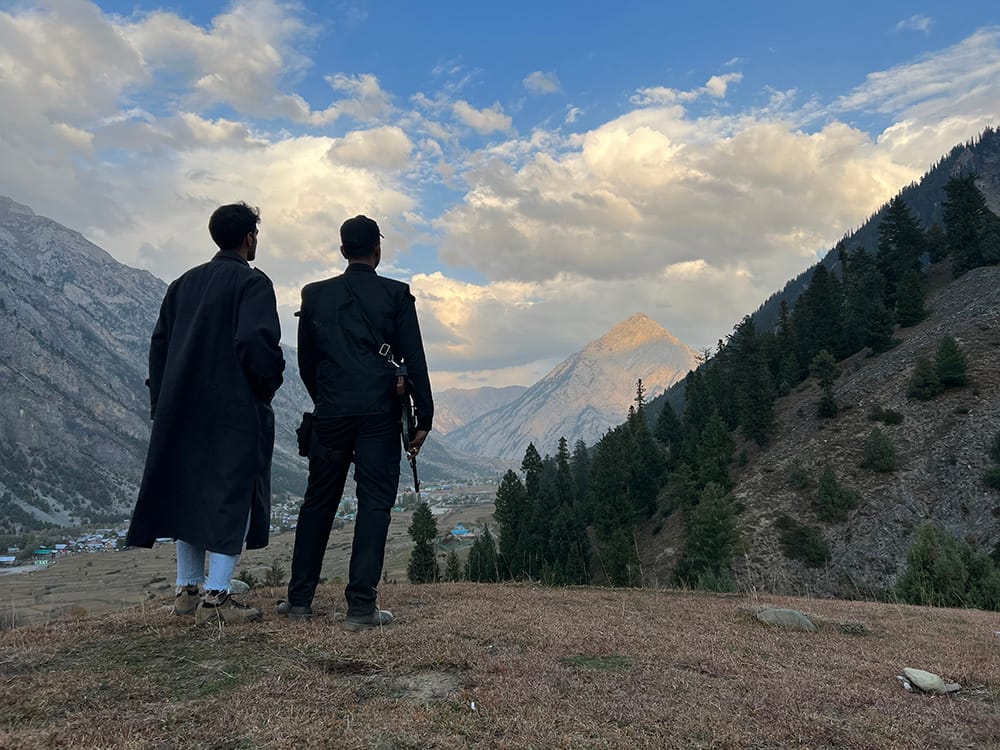In a remote valley veiled in snow and silence, a forbidden love blooms not in broad declarations but in glances, in a shared apple, in pauses that linger longer than they should. We Are Faheem & Karun, directed by Onir and co-written by Fawzia Mirza, is India’s first LGBTQIA+ film set in Kashmir, and it is spoken primarily in Kashmiri, featuring Kashmiri actors and shot entirely in the region. More than just a love story, it is a quiet political act, an emotional insurgency against erasure, state control, and societal taboo.
Premiered at BFI Flare 2025, We Are Faheem & Karun marks a critical shift in Indian independent cinema not just because it centres queer love, but because it does so in a space traditionally left out of national narratives: Kashmir. It is slated to be screened at the Indian Film Festival of Melbourne (IFFM) later this month, continuing its journey across international platforms and bringing deeply local, intersectional stories to a global audience.
Starring Mir Tawseef as Faheem, Akash Menon as Karun, and Mir Salman as Zaid, Faheem’s elder brother, the film traces the delicate, slow-blooming relationship between two men brought together by proximity and held apart by context.
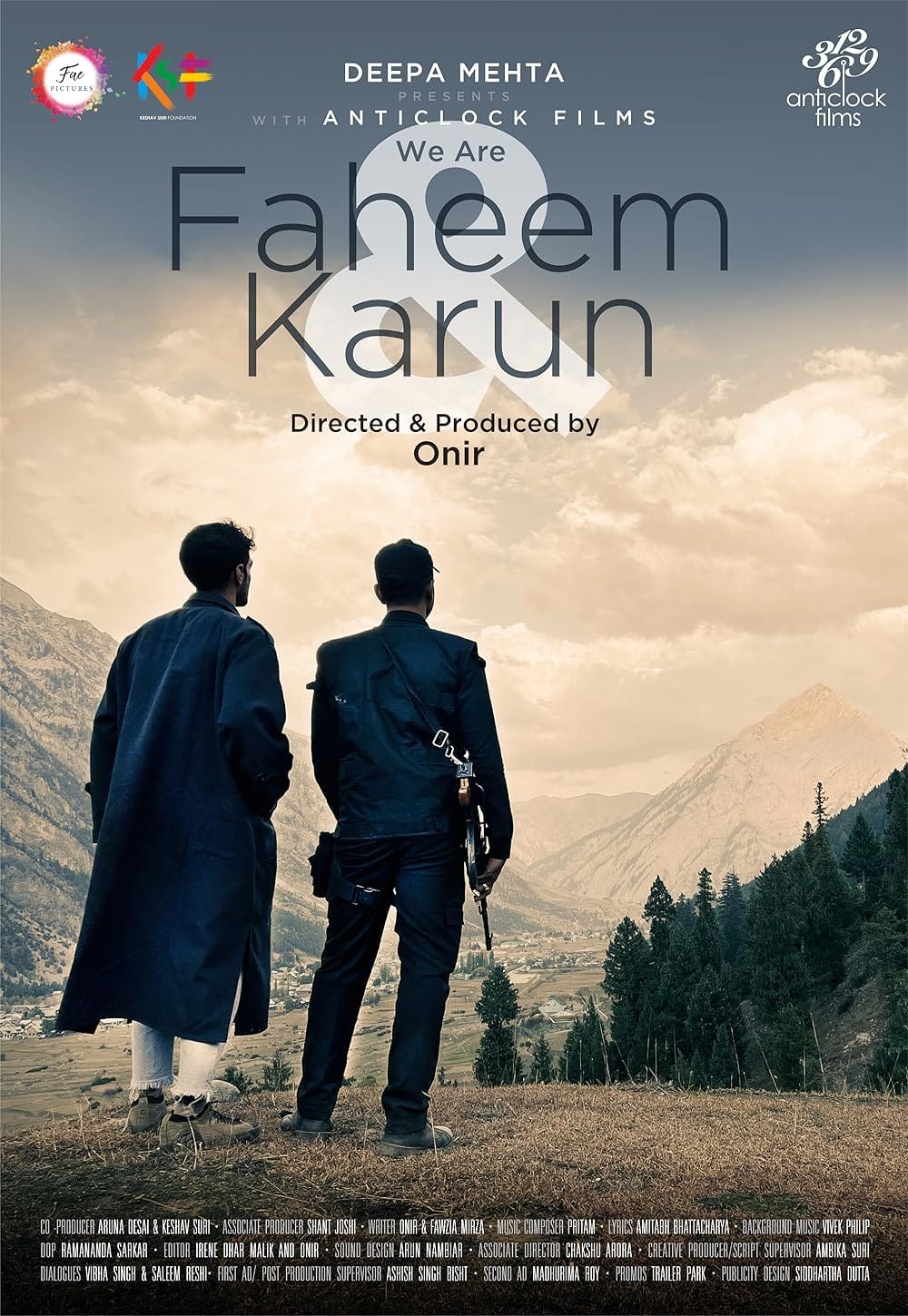
Faheem is a soft-spoken young man who lives with his family in the Gurez Valley. He moves gently through a world shaped by conservatism, tradition, and quiet repression. Karun, a Tamil-speaking paramilitary officer, is newly posted to Faheem’s village, part of India’s long-standing military presence in the region. Their relationship begins as nothing more than a repeated encounter at a checkpoint, but eventually grows into an intimate rhythm: silence, tea, shared presence. One of the film’s most poignant moments unfolds at the checkpoint, when Faheem offers Karun an apple.
In Kashmir, where food offered by locals to soldiers is often viewed with deep suspicion, this small gesture is fraught with tension. Karun hesitates, visibly uncertain. Onir captures this cultural mistrust perfectly until Faheem bites into the same apple, silently reassuring Karun of his intent. It’s an act that speaks louder than any dialogue: a delicate offering of trust, affection, and defiance in a place where even kindness can be dangerous.
Their love story unfolds in shadows, far away from the noise of mainstream queer cinema. Here, love is not spectacle, it’s survival. It’s the right to feel, to yearn, to hope, in a space that denies all three.
A historic first for Kashmiri queer storytelling
This film is ground breaking not only in content, but in form. It is the first queer narrative told in the Kashmiri language, shot entirely in Kashmir with an ensemble that includes local actors. Not every actor is Kashmiri, but the dialects, silences, and visual texture of the region are embedded into the film’s core.
Not every actor is Kashmiri, but the dialects, silences, and visual texture of the region are embedded into the film’s core.
In a cultural and political landscape where both Kashmir and queerness are often erased, We Are Faheem & Karun offers a bold refusal: to be seen, to speak, and to feel.
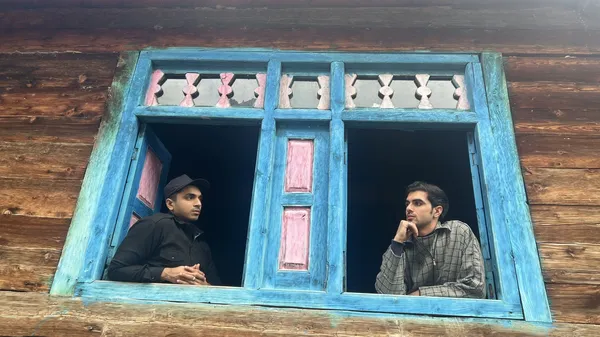
Even more remarkably, the film depicts trans characters and gender fluidity within a Kashmiri Muslim context something rarely attempted in any Indian cinema, let alone regional or conflict-zone narratives. In doing so, it doesn’t just make history; it rewrites it.
A landscape of tension: subtle disruptions, lingering threats
While We Are Faheem & Karun resists the dramatic tropes of violence and militancy, it does not erase the unsettled nature of life at the border. The Gurez Valley, where Faheem lives, is not just remote it is politically fragile, perched near the Line of Control (LoC) that separates India and Pakistan. In the film, the tension is not always named but is constantly felt. There is a disturbance brewing, and Onir carefully threads this undercurrent into the narrative, showing glimpses of military unease, sudden alerts, whispered fears within homes, and heightened security.
This is a world where a checkpoint isn’t just a symbol it is a daily reminder of surveillance and division. Through background sounds crackling walkie-talkies, distant gunfire, the sharp echo of boots the film subtly reminds us that even moments of affection are always under threat. The lovers’ bond is not just socially prohibited, but geographically imperiled. Every shared look, every exchange, takes place in a landscape charged with suspicion.
The beauty of Onir’s direction is in how he never allows this tension to overshadow the intimacy, but he doesn’t let us forget it either. A near-invisible line runs through the film, the border, both literal and emotional between Karun and Faheem, between military and civilian, between the world inside their homes and the world outside.
When Faheem bites into the apple he offers to Karun at the checkpoint, it is more than a gesture of trust between a civilian and a soldier. It is an act of rebellion against a climate of fear, suspicion, and constant alertness.
When Faheem bites into the apple he offers to Karun at the checkpoint, it is more than a gesture of trust between a civilian and a soldier. It is an act of rebellion against a climate of fear, suspicion, and constant alertness. In Kashmir, where even kindness can be construed as provocation, the quietest acts become politically charged. Onir allows us to sit with this discomfort. He doesn’t explain it. He just shows it as it is.
Family, masculinity, and the role of Faheem’s mother
The relationship between Faheem and his elder brother Zaid adds a quietly powerful tension to We Are Faheem & Karun. Zaid, though not outwardly violent, becomes the emotional arm of patriarchy in the film controlling, protective, and steeped in unspoken suspicion. He embodies the expectations of masculinity that loom over Faheem’s life: to work, to conform. His watchfulness is constant, not as a villain, but as a man shaped by the same system he now unconsciously enforces.
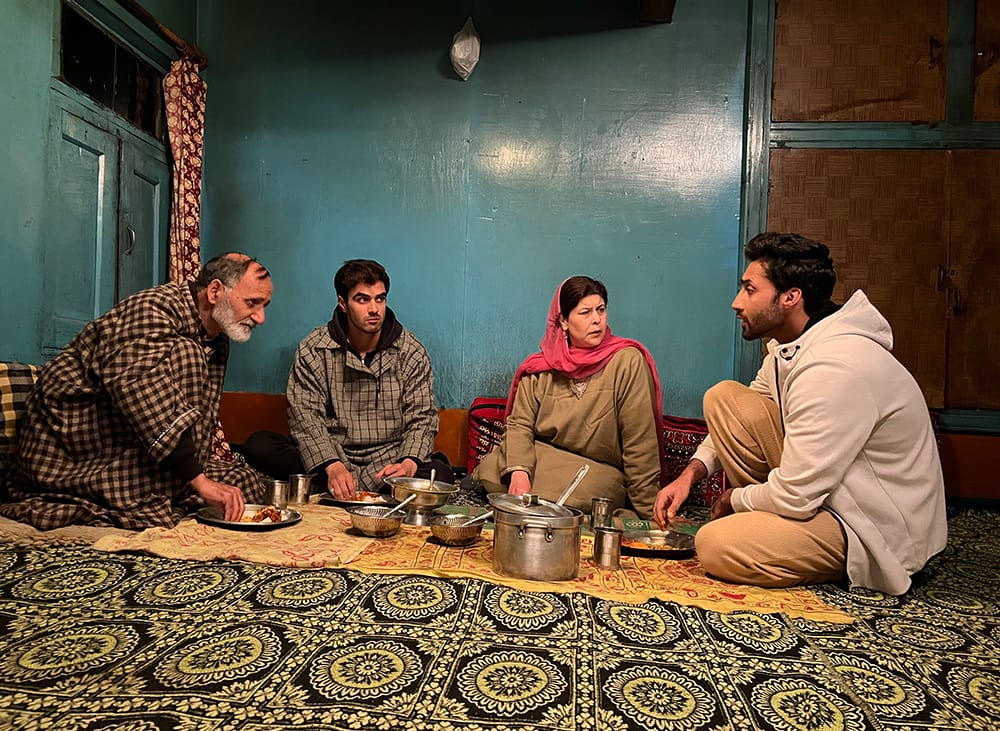
Zaid doesn’t scream or strike, but his silence speaks volumes. It creates a cage of glances, unsaid words, and emotional distance. Faheem moves cautiously in his presence, curating his gestures and suppressing his softness. And yet, it is in a moment of quiet confrontation that the tension finally breaks. Faheem, exhausted and cornered by the weight of secrecy, says:
‘I am what I am. I cannot be anything else.’
The line lands like a thunderclap. There is no drama in its delivery just honesty, a truth so long buried it echoes with quiet force. This moment of self-recognition is not about defiance but survival. It fractures the wall of silence Faheem has been trapped behind for years. He does not beg to be understood, only to be seen.
But perhaps the most quietly revolutionary character in the film is Faheem’s mother, portrayed with heartbreaking nuance and tenderness by Sana Javeid. Her role resists every stereotype typically attached to mothers in queer narratives. She is not cruel, nor is she overly sacrificial. She is, instead, deeply observant. Her soft questions, her lingering glances, the way she notices Faheem’s silence all point to a mother who knows more than she says.
Through the dynamics of this family Zaid’s repressive love and the mother’s quiet knowing Onir portrays how patriarchy doesn’t always scream; sometimes it sighs, sometimes it watches, and sometimes it just waits for you to obey.
Through the dynamics of this family Zaid’s repressive love and the mother’s quiet knowing Onir portrays how patriarchy doesn’t always scream; sometimes it sighs, sometimes it watches, and sometimes it just waits for you to obey. And in the same breath, he shows how resistance too can be silent through a mother’s refusal to shame, through a brother’s unraveling, and through a son finally claiming space for his truth.
In a society that often demands mothers to uphold patriarchal norms, her refusal to punish, to interrogate, or even to weep, becomes quietly radical. She is the film’s emotional spine neither saviour nor martyr, but simply present, watchful, unconditionally loving.
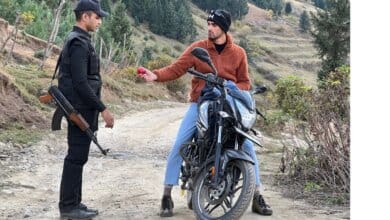
Through her, Onir gives us a mother character that resists every trope she is not the tearful victim, nor the cruel enforcer of discipline. She is, instead, a quiet witness to her son’s truth, and a soft place for him to land when the world turns cold.
What the film offers us, and what comes next
We Are Faheem & Karun doesn’t aim to educate, convert, or provoke. It simply offers a story that has long remained untold. It does not seek pity, nor does it chase headlines. It is quiet, tender, and, perhaps most importantly true.
It is a film for the unheard. For queer Muslims, for Kashmiris, for people who understand that love can be political even when it whispers, thatsilence can be an act of resistance, and thatoffering someone an apple across a checkpoint can mean more than an ‘I love you.‘ This is a story that tells us: intimacy does not always need words, and visibility does not always need spectacle.
In a world where uniformed men are rarely allowed to be vulnerable much less queer the film allows Karun to feel, to falter, and to soften. And in Faheem, we see a man learning to breathe under the weight of expectation, religion, and family. Their connection is built not in defiance of the militarised landscape, but within it a quiet rebellion nestled in routine.
In one of the film’s most intimate and layered sequences, Karun troubled by sounds of gunfire slips out of his military camp to check on Faheem’s safety. The political weight of this act is enormous: a soldier crossing boundaries, not in violence, but in care. But the world around them is not forgiving. Karun is attacked by local boys, driven by fear and the hostility that marks every outsider as a threat. Faheem intervenes fiercely, tenderly and brings Karun to safety.
He hides him on the outer roof of their home. He brings food. He brings warmth. He brings a moment of peace. And then, under the soft light of dawn, they kiss not as protest, not as performance, but as people who have found something rare in a world constantly closing in on them.
In an era where queer cinema often overcompensates with explicit scenes to prove legitimacy, We Are Faheem & Karun leans into subtlety.
And here again, the film makes a radical choice. It resists the expectation of overt physical intimacy. In an era where queer cinema often overcompensates with explicit scenes to prove legitimacy, We Are Faheem & Karun leans into subtlety. The kiss isn’t performative it’s human. There is no nudity, no romanticised escape, no grand declarations.
It also dares to enter the terrain where queer people are often not allowed to exist at all among soldiers, in Muslim families, in contested borders, and in mainstream cinema. Onir’s choice to not strip queer characters for the camera, but instead allow them to feel, hold, care, and cry, is a revolutionary act in itself.
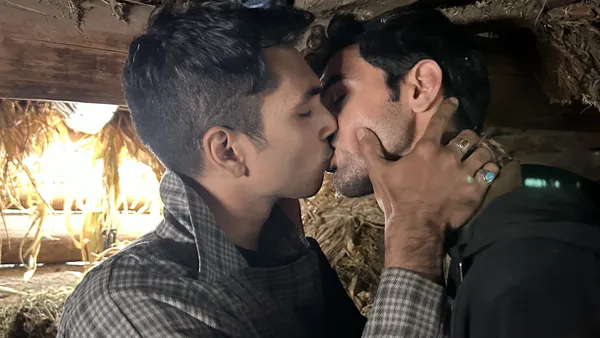
By centering queer Kashmiri voices, embracing gender fluidity, and weaving a story through the everyday gestures of love and survival, We Are Faheem & Karun becomes more than a film. It becomes a quiet map for queer existence in silenced places a testimony that says: We have always been here. And we have always loved.
About the author(s)
Masrat Nabi is a journalist whose work focuses on politics, gender, culture, and social issues in India.
